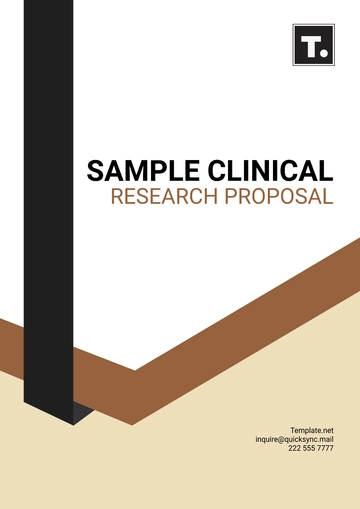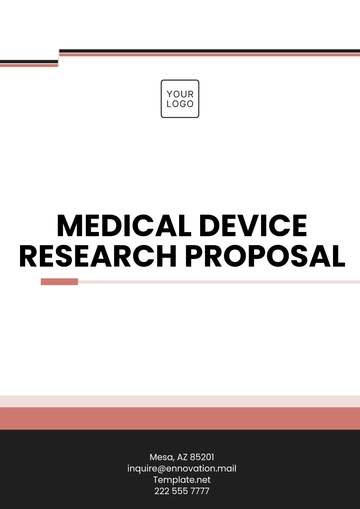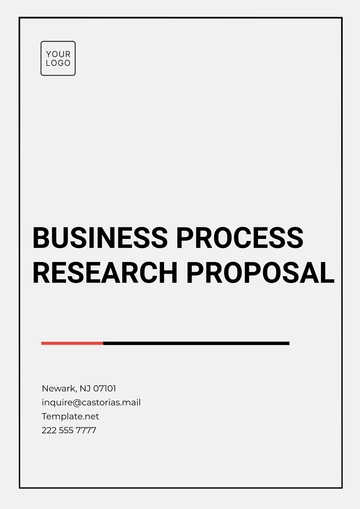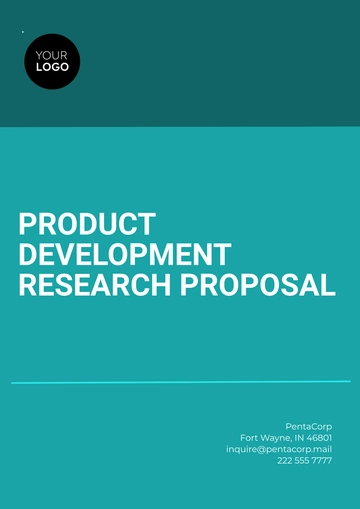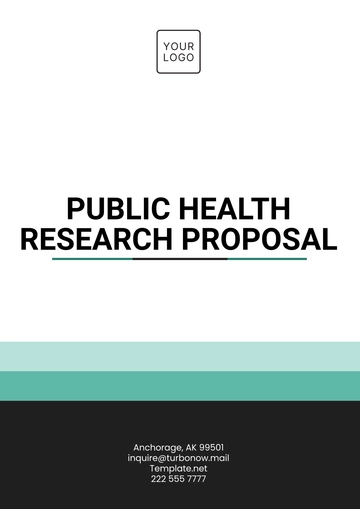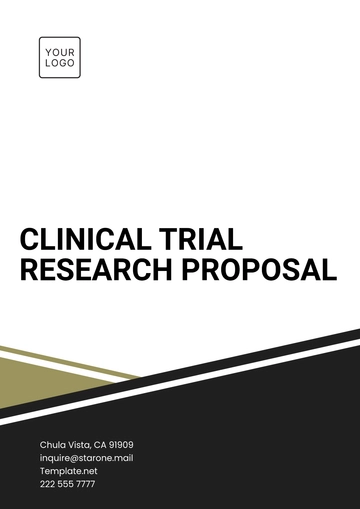Free Sample Clinical Research Proposal
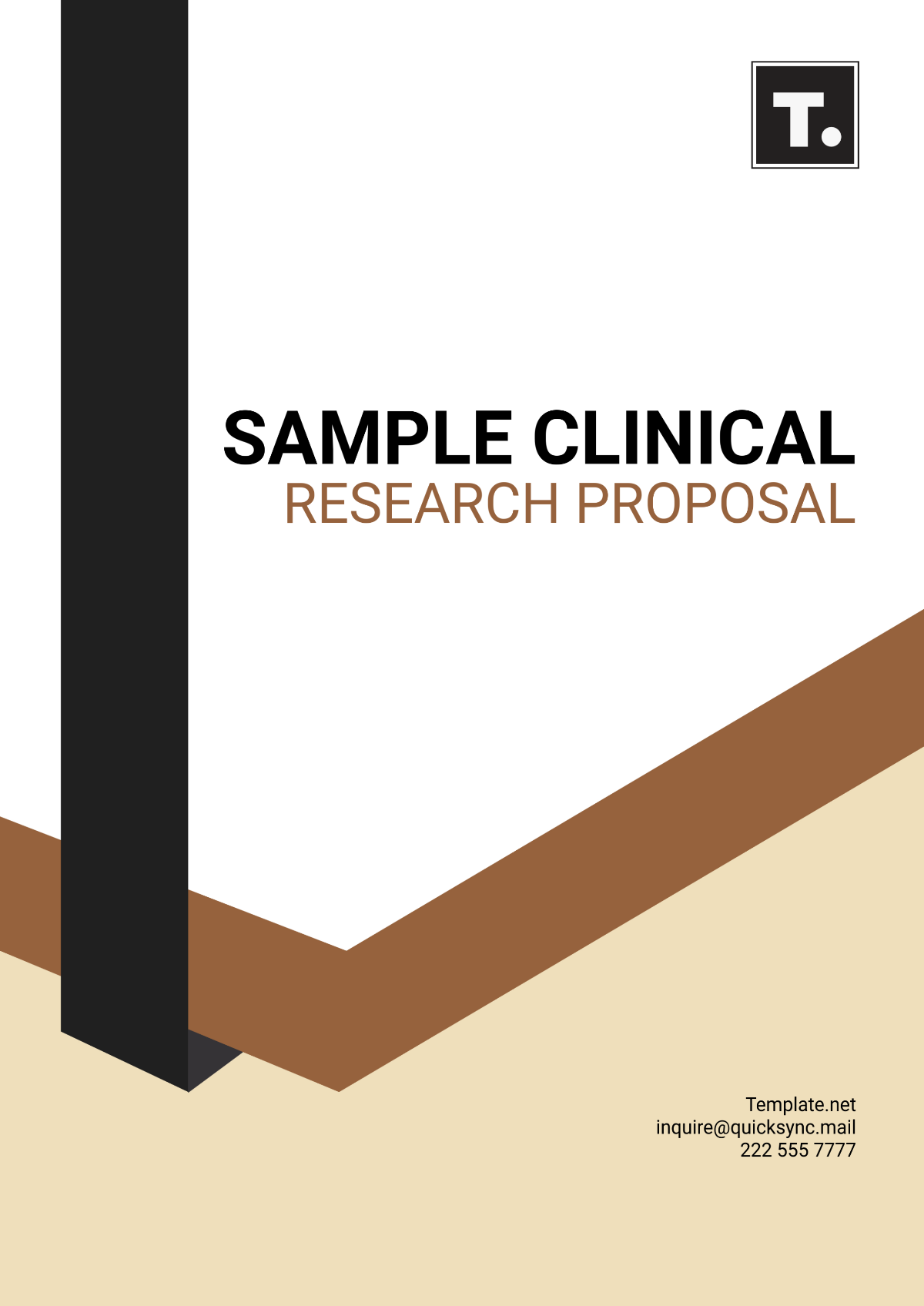
Researcher: [Your Name]
Date: [Date]
I. Introduction
This proposal outlines a clinical study aimed at evaluating the effectiveness of a new medical intervention. The study will follow a structured approach, focusing on testing specific hypotheses while ensuring patient safety and adherence to ethical guidelines.
II. Objectives
Primary Objective: To assess the safety and efficacy of the new intervention in reducing symptoms of the targeted condition.
Secondary Objective: To gather additional data on long-term effects and patient satisfaction with the treatment.
III. Methodology
Study Design: Randomized Controlled Trial (RCT).
Study Population: Adult participants aged 18-65 with the specified condition, meeting inclusion criteria.
Intervention: Administer the treatment at a specified dosage and frequency.
Data Collection: Regular assessments using surveys, lab tests, and clinical evaluations.
Data Analysis: Statistical analysis using t-tests and regression to compare treatment groups.
IV. Ethical Considerations
Informed Consent: All participants will provide signed informed consent.
Risk-Benefit Assessment: The study will proceed only if the benefits are expected to outweigh any risks.
Confidentiality: Participant data will be anonymized and securely stored.
Ethical Approval: Approval will be obtained from an Institutional Review Board (IRB).
V. Budget
Category | Estimated Cost |
|---|---|
Personnel | $40,000 |
Equipment | $8,000 |
Supplies | $4,000 |
Data Management | $5,000 |
Analysis | $7,000 |
Total | $64,000 |
VI. Timeline
Phase | Duration |
|---|---|
Preparatory | 1 month |
Recruitment | 3 months |
Data Collection | 5 months |
Analysis | 2 months |
Reporting | 1 month |
Total Duration | 12 months |
VII. References
Smith, J. (2050). Clinical Research Methodology. New York: Medical Press.
Johnson, L. & Brown, K. (2051). Ethical considerations in clinical trials. Journal of Medical Ethics, 45(1), 123-130.
- 100% Customizable, free editor
- Access 1 Million+ Templates, photo’s & graphics
- Download or share as a template
- Click and replace photos, graphics, text, backgrounds
- Resize, crop, AI write & more
- Access advanced editor
Streamline your clinical research planning with our Sample Clinical Research Proposal Template on Template.net. This editable and customizable template is designed to help you outline your clinical research objectives, methodology, and study design effortlessly. It’s fully editable in our Ai Editor Tool, making adjustments and personalizations quick and efficient. Tailor it to fit your specific clinical study needs and ensure a professional presentation every time.
You may also like
- Business Proposal
- Research Proposal
- Proposal Request
- Project Proposal
- Grant Proposal
- Photography Proposal
- Job Proposal
- Budget Proposal
- Marketing Proposal
- Branding Proposal
- Advertising Proposal
- Sales Proposal
- Startup Proposal
- Event Proposal
- Creative Proposal
- Restaurant Proposal
- Blank Proposal
- One Page Proposal
- Proposal Report
- IT Proposal
- Non Profit Proposal
- Training Proposal
- Construction Proposal
- School Proposal
- Cleaning Proposal
- Contract Proposal
- HR Proposal
- Travel Agency Proposal
- Small Business Proposal
- Investment Proposal
- Bid Proposal
- Retail Business Proposal
- Sponsorship Proposal
- Academic Proposal
- Partnership Proposal
- Work Proposal
- Agency Proposal
- University Proposal
- Accounting Proposal
- Real Estate Proposal
- Hotel Proposal
- Product Proposal
- Advertising Agency Proposal
- Development Proposal
- Loan Proposal
- Website Proposal
- Nursing Home Proposal
- Financial Proposal
- Salon Proposal
- Freelancer Proposal
- Funding Proposal
- Work from Home Proposal
- Company Proposal
- Consulting Proposal
- Educational Proposal
- Construction Bid Proposal
- Interior Design Proposal
- New Product Proposal
- Sports Proposal
- Corporate Proposal
- Food Proposal
- Property Proposal
- Maintenance Proposal
- Purchase Proposal
- Rental Proposal
- Recruitment Proposal
- Social Media Proposal
- Travel Proposal
- Trip Proposal
- Software Proposal
- Conference Proposal
- Graphic Design Proposal
- Law Firm Proposal
- Medical Proposal
- Music Proposal
- Pricing Proposal
- SEO Proposal
- Strategy Proposal
- Technical Proposal
- Coaching Proposal
- Ecommerce Proposal
- Fundraising Proposal
- Landscaping Proposal
- Charity Proposal
- Contractor Proposal
- Exhibition Proposal
- Art Proposal
- Mobile Proposal
- Equipment Proposal
- Student Proposal
- Engineering Proposal
- Business Proposal
